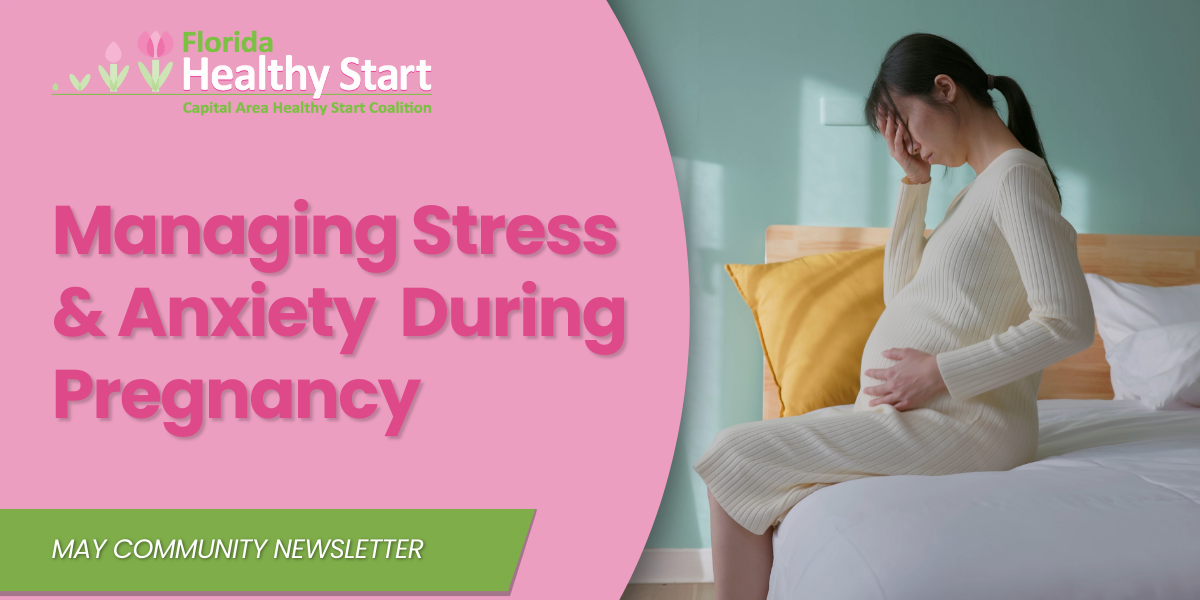This Month is Maternal Mental Health (MMH) Month! Each year, we use this month to raise awareness about the emotional well-being of mothers during pregnancy and after giving birth. Read the entire newsletter here:
Affecting approximately 1 in 5 women, MMH conditions are some of the most common complications of pregnancy and childbirth ─ with depression and anxiety being the most frequent.
Any woman can develop depression or anxiety, regardless of age, marital status, education, or income level. However, there are certain factors that increase a woman’s chance of suffering from these medical conditions. These include a family history of depression, past physical or sexual trauma, hormones, and even life stress.
When you’re pregnant, there are days when you may experience every possible emotion (hello, hormones!). But one of the most common feelings that many expecting mothers experience throughout their pregnancy is stress—stress about your baby, stress about your body, stress about prepping for the baby’s arrival, stress about life changes — you name it.
And while it’s normal to experience these emotions, long-term or severe stress during your pregnancy isn’t good for you or your baby. In fact, high levels of constant stress can make pregnancy symptoms worse (like trouble sleeping, body aches, etc.) or contribute to larger issues like high blood pressure and maternal mental health (MMH) conditions. For this reason, finding ways to manage stress is important for any mama-to-be. Turn to Page 3 for 5 Stress-Reducing Tips to Try During Pregnancy.







